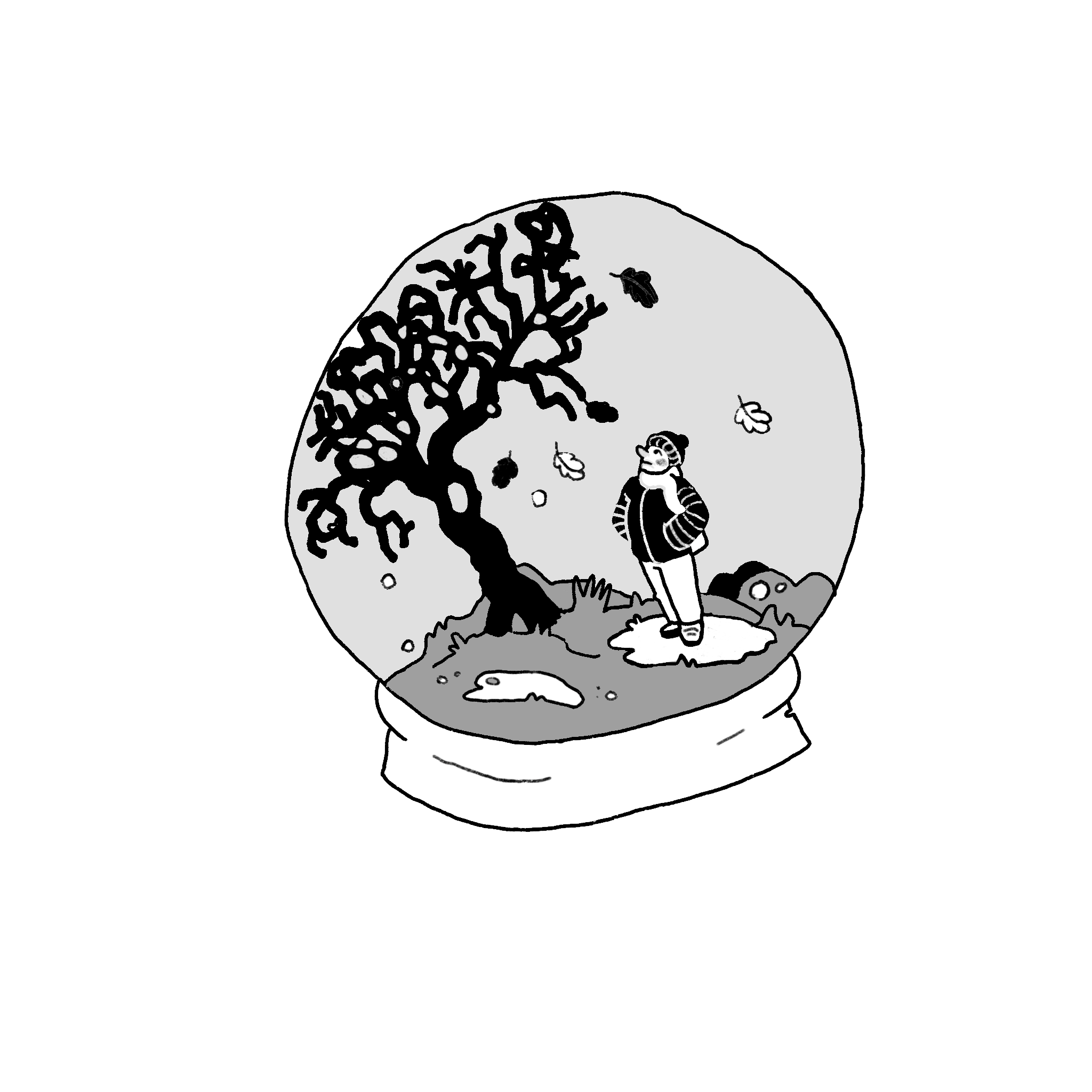On snow
February 10, 2023
 This
piece represents the opinion of the author
.
This
piece represents the opinion of the author
.
 Celeste Mercier
Celeste MercierIt’s become the universalized symbol of winter: the first snow, where you run out in the now cold air. A light dusting covers the ground and you try to catch a snowflake on your tongue. I always look forward to that first snow of the year, because it marks the changing of the seasons and the beginning of a beautiful winter. Yet, I’ve been looking forward to that beautiful winter and haven’t been able to find it. I’ve come to gradually realize that over these past years, my relationship with snow and our winters has been changing. I thought it might have been because I have been changing. I’ve gotten older, and I don’t see the world the same way. But while the naïve veil through which children view the world may have lifted, something else has changed. I realized that I was right. Our winters are changing.
Having grown up in southern New Hampshire, I remember when the first snow would arrive in early November and would continue to fall for the next five months until March. The snow plows’ endless pursuit of clean roads would create mountains in parking lots that could last until May or June. Meanwhile the snowman created during winter break would last till February break, when it would inevitably be destroyed in a snow fight and by a subconscious desire for spring to come soon. However, the past few winters have failed to meet that image I hold in my head.
Our winters are certainly changing. Today, the snow comes in November but quickly fades away. It’s followed by an onslaught of rain. In December, it snows again. But it quickly melts. By the time we ring in the new year, you can still find green grass, which could be a sign of hope, but it isn’t to me. Come January and February, the winter winds begin to blow, the snow descends from the sky and it feels for an instant as if winter has finally arrived. Yet as soon as it stops snowing, the melt begins again. The snow won’t stay. It can’t.
We have changed our planet. Of course we have. It’s a fact that has been hammered into my head since I entered middle school. I never doubted it. But for so long, the consequences seemed far off and distant. But the climate, impervious to the disbelief of the youth, began to slowly warm the winters where I grew up.
Then I came northwards, and thought I left it all behind. I came to a place where the temperature averages 5 degrees colder than my childhood home, and I assumed I could find that winter I always dreamed of again. But I haven’t. Sure, as I write this, snow still covers the ground. But today, the temperature is forecast to reach 50. That should not happen in winter. The winter cold did not arrive till after we left for winter break and has begun to leave sooner than it should. If you look outside, you can find buds on some of the trees. Despite not being a biology major, I feel qualified to say this: trees should not be budding in early February.
When I call home, I ask my parents about the weather and how much snow they have, thinking I may have entered some geographic anomaly. Their responses always start out differently: “it was cold last week, and we thought…”, “it’s been warm for a while…” or “it snowed six inches a few days ago…”, but always end in the same way—“but at the moment we have no snow.” The weather has changed everywhere.
As the snow came down a few days ago, I thought about how lucky I am to live in a place where it can still snow. I used to never regard the snow as something rare, but now I do. I treasure every moment those flakes drift downwards, having now understood their rarity. Snow now holds a new meaning for me as what was once normal has become abnormal, but that doesn’t mean winter is gone. The snow still comes and our winters still occur, they’re just different than they used to be—a bit more sporadic and erratic in nature. We must understand that we now live in a world with a changed climate and that our quad will be greener far sooner than it should. We have changed our winters, and if we wish to protect them, we must change our actions. But that, as so much else in this world, depends solely on us.
Sam Borne is a member of the Class of 2026.

Comments
Before submitting a comment, please review our comment policy. Some key points from the policy: